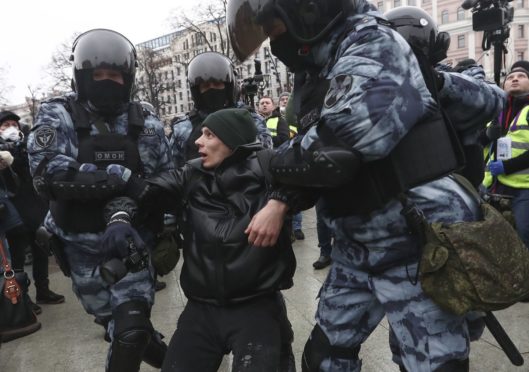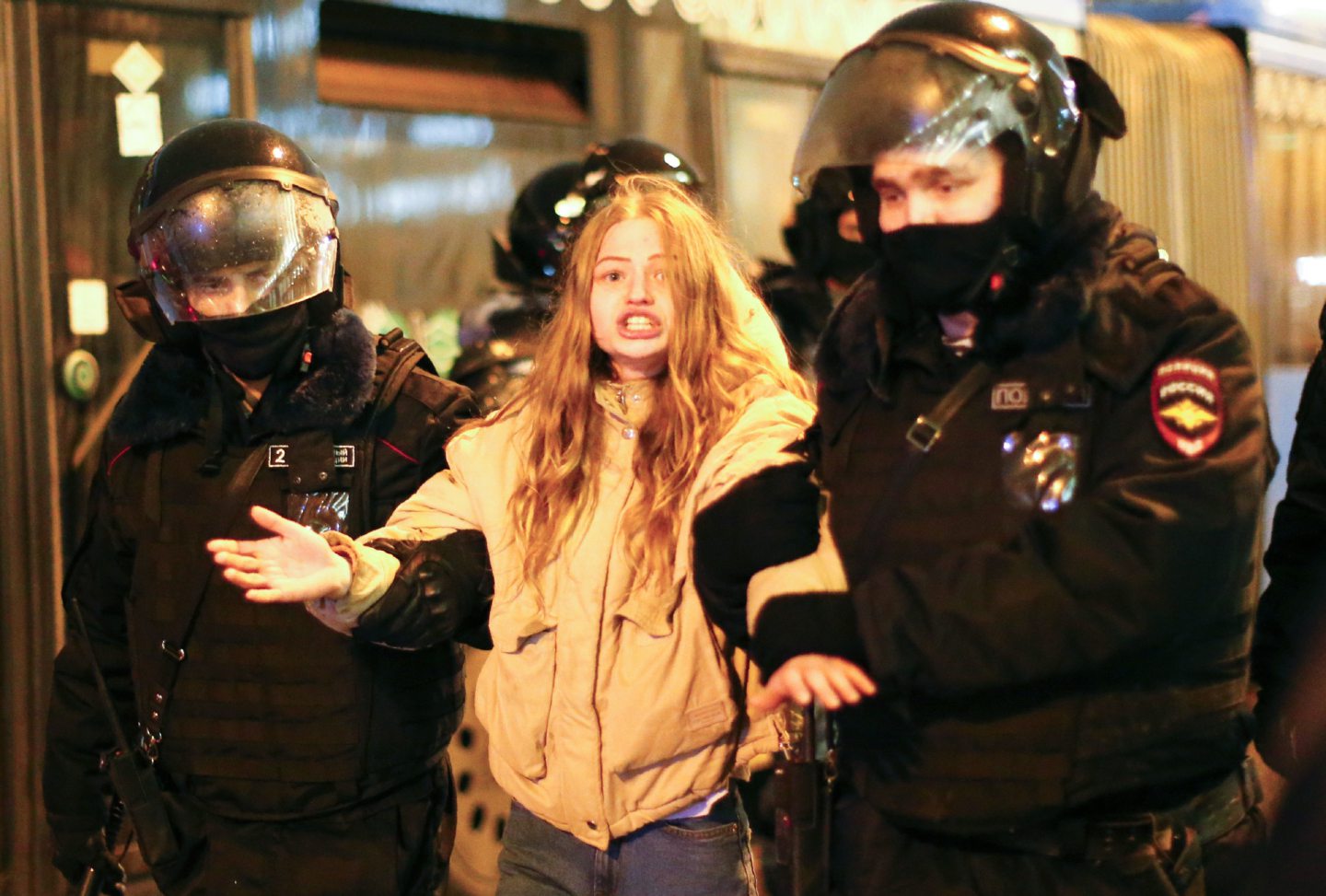
About 1,600 people have been arrested after protests erupted in more than 60 Russian cities to demand the release of opposition leader Alexei Navalny, the Kremlin’s most prominent foe.
Some of the demonstrators took to the streets in temperatures as low as -50C.
In Moscow, 5,000 protesters filled Pushkin Square in the city centre, where clashes with police broke out and demonstrators were dragged away by riot officers to police buses and detention trucks.
Mr Navalny’s wife, Yulia, was among those held. She posted an image on her Instagram account with a caption saying: “Apologies for the poor quality. Very bad light in the police van.”
Police eventually pushed demonstrators out of the square. Thousands then regrouped along a wide boulevard about half a mile away, many of them throwing snowballs at the police.
The protests stretched across Russia, from the island city of Yuzhno-Sakhalinsk north of Japan and the eastern Siberian city of Yakutsk, where temperatures plunged to -50C, to the more populous European cities.
The range demonstrated how Mr Navalny and his anti-corruption campaign have built an extensive network of support despite official government repression and being routinely ignored by state media.
The OVD-Info group, which monitors political arrests, said more than 500 people were detained in Moscow yesterday and more than 200 at another protest in St Petersburg.
Overall, it said 1,614 people had been arrested in 90 cities.
Mr Navalny was arrested on January 17 when he returned to Moscow from Germany, where he had spent five months recovering from a severe nerve-agent poisoning that he blames on the Kremlin, and which Russian authorities deny.
Authorities say his stay in Germany violated terms of a suspended sentence in a 2014 criminal conviction, while Mr Navalny says the conviction was for made-up charges.
The 44-year-old activist is well known nationally for his reports on the corruption. Last week, in a video released after his arrest, he claimed Russian President Vladimir Putin had a secret slush fund to spend millions on his mistresses and love children.
The video also showed footage of a billion-dollar palace by the Black Sea, complete with a tunnel leading to a private beach, which Mr Navalny claims is owned by Mr Putin.
His wide support puts the Kremlin in a strategic bind – risking more protests and criticism from the West if it keeps him in custody, but apparently unwilling to back down by letting him go free.
Mr Navalny faces a court hearing in early February to determine whether his sentence in the criminal case for fraud and money-laundering is converted to three and a half years behind bars.
On Thursday, Moscow police arrested three top Navalny associates, two of whom were later jailed for periods of nine and 10 days.

Enjoy the convenience of having The Sunday Post delivered as a digital ePaper straight to your smartphone, tablet or computer.
Subscribe for only £5.49 a month and enjoy all the benefits of the printed paper as a digital replica.
Subscribe © AP
© AP